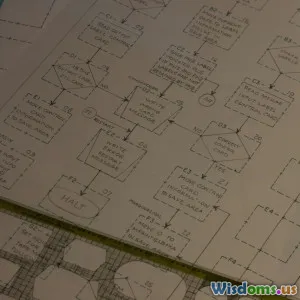
Is Grit More Important Than Talent for Personal Success
10 min read Exploring whether grit outweighs talent in achieving personal success through research, real-world examples, and expert insights. (0 Reviews)
Is Grit More Important Than Talent for Personal Success?
Introduction
What propels a person toward extraordinary achievements? Is it innate talent, a natural gift that sets them apart from the very beginning? Or does relentless perseverance—grit—drive individuals to succeed against the odds? This timeless debate has captivated educators, psychologists, and even business leaders for decades. Understanding the interplay between grit and talent isn't merely an academic question; it has practical implications for how we approach learning, work, and life goals.
This article examines whether grit is more important than talent for personal success. We will explore definitions, scientific evidence, real-world examples, and expert opinions to uncover what truly differentiates high achievers from everyone else.
Defining Talent and Grit
Before diving into their impact, we must understand what these terms entail.
What is Talent?
Talent is often described as a natural aptitude or innate ability in a particular area. It can manifest in various forms—musical ability, athletic skills, intellectual capacity, artistic creativity, or problem-solving prowess. For example, Mozart demonstrated extraordinary musical talent from an early age, highlighting natural predisposition.
However, talent alone doesn't guarantee success. There's often an assumption that talented individuals effortlessly excel without significant effort. But is this truly the case?
Understanding Grit
Grit, a popular term in psychology popularized by Angela Duckworth, is defined as "perseverance and passion for long-term goals." It represents sustained effort and interest over years, regardless of early failures or plateaus.
Gritty people display resilience, dedication, and the ability to endure challenges without losing enthusiasm. Thomas Edison, who famously said, "Genius is one percent inspiration and ninety-nine percent perspiration," embodies grit through relentless experimentation leading to groundbreaking inventions.
The Scientific Perspective: Studies Comparing Grit and Talent
Research into success factors traverses various fields—psychology, education, business. Let’s explore key findings that shed light on grit and talent.
Angela Duckworth’s Trailblazing Research
Angela Duckworth’s 2007 study highlighted that grit predicted success outcomes in challenging environments better than IQ or talent measures. For instance, in her study of cadets at the United States Military Academy at West Point, those with higher grit scores were more likely to complete rigorous training despite setbacks.
Her 2016 book, "Grit: The Power of Passion and Perseverance," argues that sustained determination surpasses pure intellectual or natural talent in achieving success.
Talent’s Limitations
While talent gives an initial advantage, studies suggest it is often overemphasized. Psychologist Carol Dweck notes that people who attribute success solely to innate talent tend to give up more easily when facing difficulties.
A groundbreaking meta-analysis from 2013 in the journal Perspectives on Psychological Science revealed that while ability is important, deliberate practice—a form of gritty behavior—is a far better predictor of expertise across domains such as music, sports, and chess.
The Role of Deliberate Practice
Deliberate practice involves focused, goal-oriented practice designed to improve performance. Grit anchors this process by sustaining effort.
For example, top violinists typically engage in thousands of hours of deliberate practice starting from a young age, often compensating for any discrepancies in natural talent.
Neurological Insights
Recent neuroscience research suggests that grit may influence neural plasticity, reinforcing the brain's ability to adapt and learn despite initial disadvantages.
A 2019 study published in Nature Communications observed that grit correlated positively with functional connectivity between specific brain regions involved in cognitive control and reward, implying a biological underpinning to perseverance.
Real-World Examples: When Grit Outshines Talent
Examining success stories across fields reveals numerous cases where grit outpaces talent.
J.K. Rowling: From Struggle to Stardom
Before the massive success of Harry Potter, J.K. Rowling faced countless rejections from publishers and difficult personal circumstances. Despite lacking notable early accolades, her perseverance enabled eventual triumph, reshaping global literature.
Michael Jordan: The Most Iconic Athlete Who Was Cut From His High School Team
Often regarded as the greatest basketball player ever, Michael Jordan was famously cut from his high school varsity team, an apparent blow to his talent label. His iron will transformed failure into fuel, cultivating relentless practice and competition.
Oprah Winfrey: Overcoming Adversity With Persistence
Oprah's early life was marked by significant hardships, yet her determination to excel in media propelled her to become one of the world’s most influential personalities.
The Tech Industry: Grit in Entrepreneurial Success
Entrepreneurs like Elon Musk faced several failures—bankruptcies and product flops—but persistent problem-solving led to groundbreaking companies like Tesla and SpaceX. While Musk has technical ability, grit arguably defined his rise.
Arguments That Talent Still Matters
It is important to acknowledge talent’s undeniable influence.
Starting Advantage
Talent can facilitate easier early progress. For example, to compete professionally in sprinting, inherent fast-twitch muscle fibers provide a biological edge.
Talent Can Sustain Motivation
Sometimes early success from talent reinforces motivation, creating a positive feedback loop.
Talent and Grit Are Not Mutually Exclusive
Top performers often harness talent alongside grit. Thus, framing them as opponents might be misleading; rather, synergy matters.
How to Cultivate Grit for Personal Success
Even if talent is fixed to some extent, grit is developable, offering a practical route to improvement.
Set Clear, Passionate Long-Term Goals
Aligning effort with meaningful, vivid goals sustains perseverance. Angela Duckworth emphasizes the importance of passion.
Embrace Challenges and Persist Through Failure
Reframing setbacks as learning opportunities strengthens resilience.
Develop a Growth Mindset
Carol Dweck’s work underscores believing that abilities can improve through effort encourages sustained grit.
Practice Deliberately
Focused, structured practice methods enhance performance beyond just 'time on task.'
Build Supportive Environments
Mentors, peers, and positive feedback amplify grit development.
Research shows that schools and workplaces emphasizing effort result in higher achievement over those focusing solely on innate skills.
Conclusion
Is grit more important than talent? The answer is nuanced but clear: while natural talent offers advantages, grit—the unwavering commitment to long-term goals—plays a decisive role in personal success.
Scientific studies underscore that grit predicts achievement better than intelligence or natural ability in many contexts. Real-world stories from athletes, writers, business leaders, and scientists consistently demonstrate that passion and perseverance help overcome obstacles talent alone cannot.
Furthermore, grit is often growable, equipping individuals with a tangible path toward growth and achievement regardless of inherent ability levels. Thus, fostering grit not only empowers individuals to reach their potential but also democratizes success beyond those with natural gifts.
Ultimately, aspiring achievers should not despair or rest on talent alone but cultivate grit to unlock lasting success. As Thomas Edison affirmed, genius truly lies in persistent effort—the tenacity to carry on when faced with setbacks and the courage to pursue dreams with unwavering passion.
References
- Duckworth, A. L., Peterson, C., Matthews, M. D., & Kelly, D. R. (2007). Grit: perseverance and passion for long-term goals. Journal of Personality and Social Psychology, 92(6), 1087–1101.
- Dweck, C. (2006). Mindset: The New Psychology of Success. Random House.
- Ericsson, K. A., Krampe, R. T., & Tesch-Romer, C. (1993). The role of deliberate practice in the acquisition of expert performance. Psychological Review, 100(3), 363.
- Nature Communications (2019). [Study on brain connectivity linked to grit].
This synthesis of science, example, and expert insight hopefully inspires readers to recognize grit as a vital ingredient for their own paths to success.
Rate the Post
User Reviews
Popular Posts

















